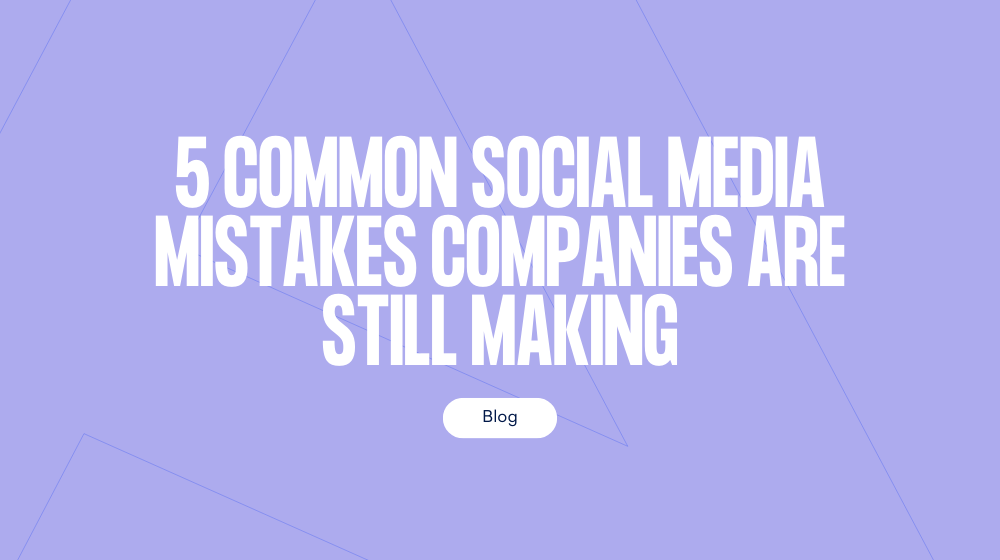Most growing companies are aware how important a strong social media presence is. However, just having a social media account and publishing content on an ad hoc basis isn’t enough to get the most out of that presence. Companies need to have a strategy in place to meet the expectations of their audiences and achieve their own comms goals.
Unfortunately, social media strategies are less common than they should be within organisations, while some mistakes are all too common. Take a step back for a moment and consider if your organisation is guilty of any of these...
Consistency over frequency
Spamming your own Instagram account in a day then neglecting it for a week will irritate your followers and drive them away. You should have a strategy in place for each platform that sets out everything from the type of content to post to the tone of your words to the colour-scheme you use to the frequency with which you post. This consistency will keep your audiences coming back for more and give you a platform from which to achieve your goals.
Cross-platform auto-posts
As mentioned above, your approach should be different for each platform. The features and audiences of each platform are different and should be adapted to accordingly. If you are posting the same content across all platforms, audiences will see you as lazy, disinterested and lacking in social media savvy.
As a photo sharing platform, Instagram is more visual and so its users don’t appreciate overly text-heavy captions. Twitter, on the other hand, relies on text, so, although you might post about the same topic on both platforms, you need to play to the platform in how you do.
Not being engaging
Content is essential for attracting followers, but it means nothing without engagement from your target audiences. Individuals can engage with your content through comments, shares, tags and likes, but it’s important you understand how your organisation should engage with them too.
There are two main ways brands can stay engaged. The first is using social media as a customer service platform, giving timely responses to user’s questions and complaints. According to SocialFresh, 30% of Twitter users expect a response within 30 minutes and 29% of Facebook users expect a response within 2 hours. Not keeping up with your followers’ expectations is bad for your reputation.
Brands can also stay engaged through real-time engagement by monitoring trends and keeping up with what’s going on in the news. Look for relevant conversations that you can engage in to help you keep up with trends. Trending equals traffic. Social media management and analytics companies like SproutSocial can help you pick strategic keywords to monitor.
Misusing hashtags
Organisations need to understand what the purpose of hashtags are instead of using them because they feel they need to. Hashtags are a clickable tagging system that allows users to flag up specific topics so that they’re viewable to anyone who is interested. They make your social posts visible to people outside your usual network.
Twitter hashtags rack up double the engagement of a tweet but try not to add any more than two. Data from Entrepreneur shows Instagram’s golden number is 11+ hashtags which receives 79.5% interaction per 1,000 followers. However, Instagram is a visual platform and your followers won’t appreciate the clutter. Try adding hashtags as a comment on your post so they do not take away attention from your caption. Hashtags on Facebook didn’t take off initially, but it’s now recommended to stick to 1-2 hashtags per post for optimal engagement.
Misunderstanding followers and sales
Followers mean brand exposure and awareness, both of which help to build long-term relationships with potential and existing customers. Follower numbers don’t always translate into sales though – and nor should they. Social media is about engagement, not just marketing, so it’s important to focus on fostering relationships as much as it is selling your services.
Photo by Nathan Dumlao on Unsplash



